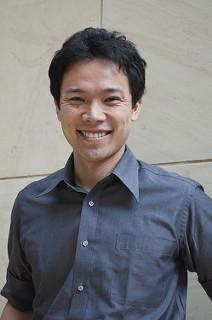Control Seminar
Continuous-Time Channel Gain Control for Minimum-Information Kalman-Bucy Filtering
This event is free and open to the publicAdd to Google Calendar

ABSTRACT: Motivated by a practical scenario where a continuous-time source signal is encoded, compressed, and transmitted to a remote user where the signal is reproduced in a real-time manner (e.g., streaming of neuromorphic camera data), we study the fundamental trade-off between the encoding data rate and the best achievable data quality (distortion).
After briefly reviewing the “causal” rate-distortion theory in discrete-time, in this talk, we consider the problem of estimating a continuous-time Gauss-Markov source process observed through a vector Gaussian channel with an adjustable channel gain matrix. For a given (generally time-varying) channel gain matrix, we provide formulas to compute (i) the mean-square estimation error attainable by the classical Kalman-Bucy filter, and (ii) the mutual information between the source process and its Kalman-Bucy estimate. We then formulate a novel “optimal channel gain control problem” where the objective is to control the channel gain matrix strategically to minimize the weighted sum of these two performance metrics.
To develop insights into the optimal solution, we first consider the problem of controlling a time-varying channel gain over a finite time interval. A necessary optimality condition is derived based on Pontryagin’s minimum principle. For a scalar system, we show that the optimal channel gain is a piece-wise constant signal with at most two discontinuities. We also consider the problem of designing the optimal time-invariant gain to minimize the average cost over an infinite time horizon. A novel semidefinite programming (SDP) heuristic is proposed to compute the optimal solution.
BIO: Takashi Tanaka is an Assistant Professor in the Department of Aerospace Engineering and Engineering Mechanics at the University of Texas at Austin since 2017. He received his B.S. degree from the University of Tokyo in 2006, M.S. and Ph.D. degrees from UIUC in 2009 and 2012, all in Aerospace Engineering. Prior to joining UT Austin, he held postdoctoral researcher positions at MIT and KTH Royal Institute of Technology. His research interest is broad in control, optimization, games, and information theory; most recently their applications to networked control systems, real-time data sharing, and strategic perception. He is the recipient of the DARPA Young Faculty Award, the AFOSR Young Investigator Program award, and the NSF Career award.
***Event will take place via Zoom. Zoom link and password will be distributed to the Controls Group e-mail list-serv. To join this list-serv, please send an (empty) email message to [email protected] with the word “subscribe” in the subject line. Zoom information is also available upon request to Katherine Godwin ([email protected]).
 MENU
MENU 
